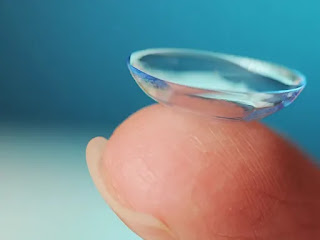Floaters
You’re seeing specks, spots, threads, or cobweb-like objects in
your field of vision, but when you try to focus on them, they never stay still
long enough to be visible. What’s going on? You’re experiencing eye floaters,
and although these phantom forms can be a bit unnerving at times, you likely
have nothing to worry about.
Eye floaters generally occur as you age, and are caused by the
natural degeneration of your eye’s vitreous, the gel-like substance that helps
maintain the round shape of your eyeball. Over time, the vitreous can dissolve,
shrink, and liquefy, causing the vitreous to have a stretched or string-like
consistency. When this happens, the usually transparent vitreous casts shadows
on your retina, ultimately appearing in your vision as an eye floater.
Most often, eye floaters affect older individuals, those with
diabetes, or people who have undergone cataract surgery. The occasional floater
is nothing to worry about, but in some situations, eye floaters could mean
something more serious.
If you are experiencing any of the following signs or symptoms, it’s time to call our office:
- You suddenly begin seeing floaters on a regular basis
- They interfere with your regular vision.
- Your eye floaters are accompanied by flashes of light, vision loss, or pain.
- Eye floaters follow an eye surgery or trauma.
If you are experiencing any of the following signs or symptoms, it’s time to call our office:
- You suddenly begin seeing floaters on a regular basis
- They interfere with your regular vision.
- Your eye floaters are accompanied by flashes of light, vision loss, or pain.
- Eye floaters follow an eye surgery or trauma.
Keep an eye on floaters (figuratively speaking!) and immediately
call us if you suspect that you’re experiencing abnormal eye floater
behavior.

Comments
Post a Comment